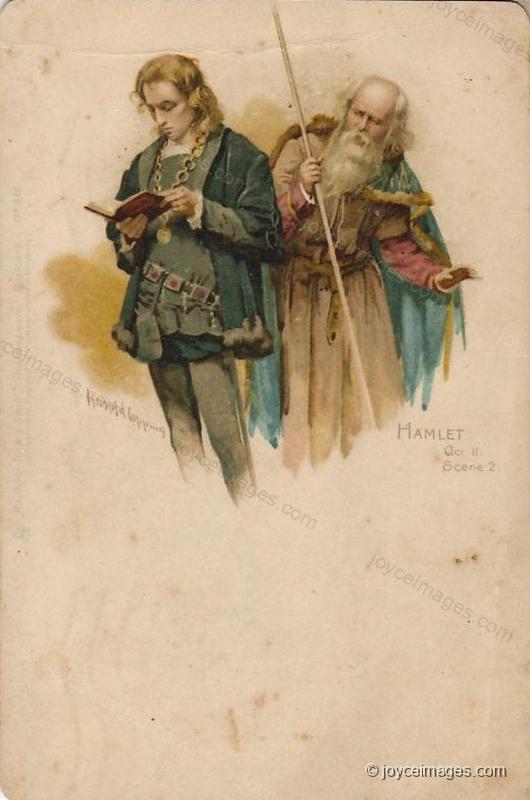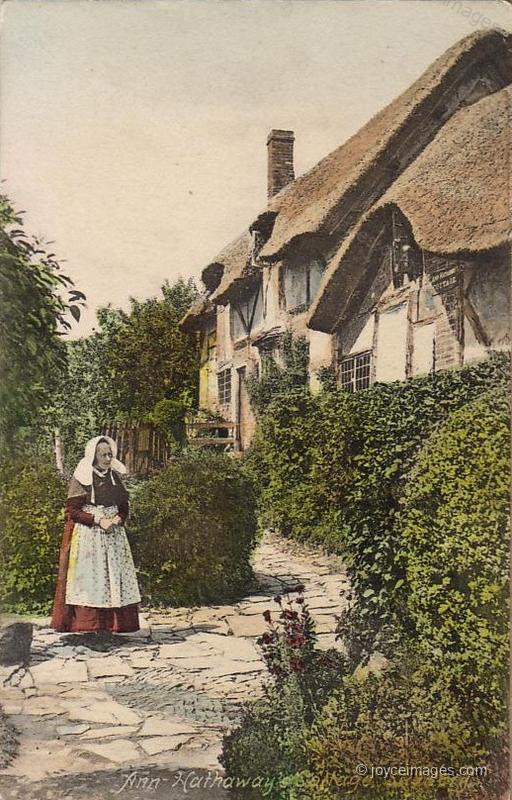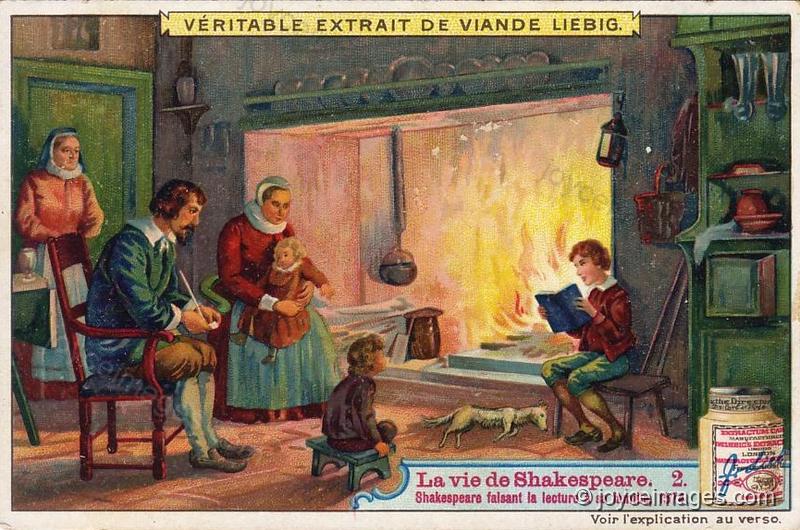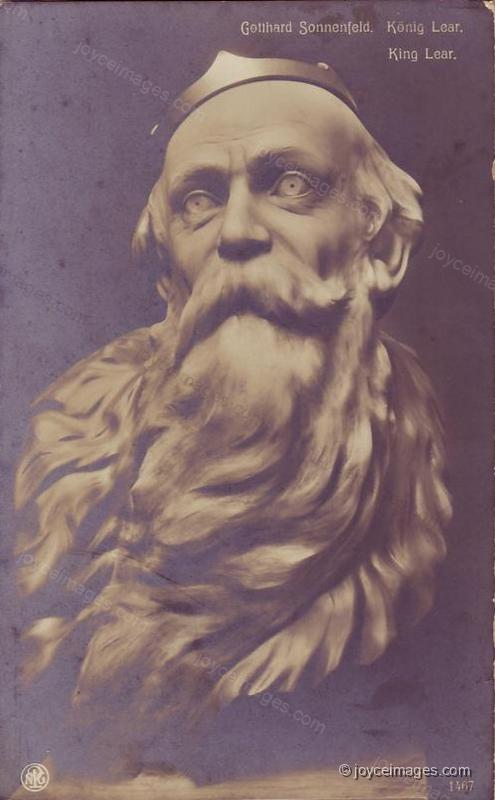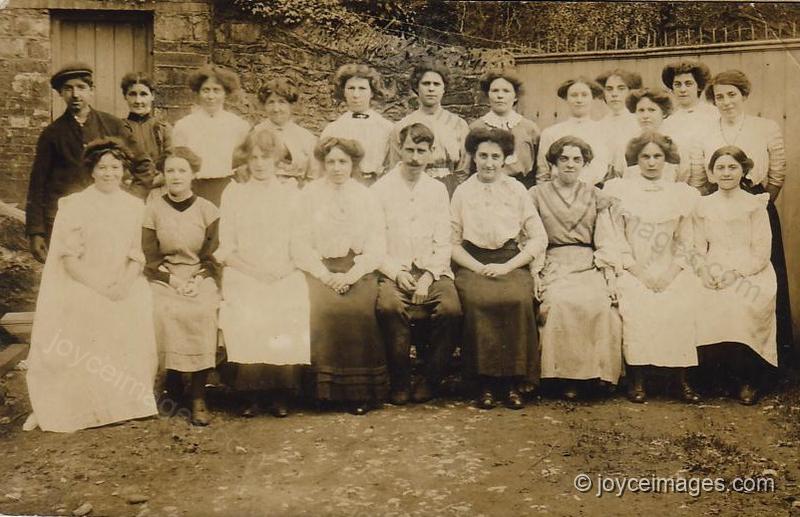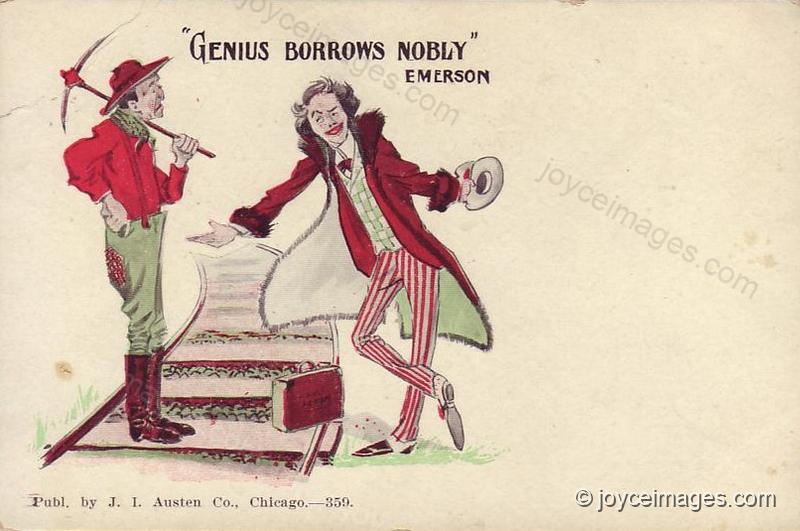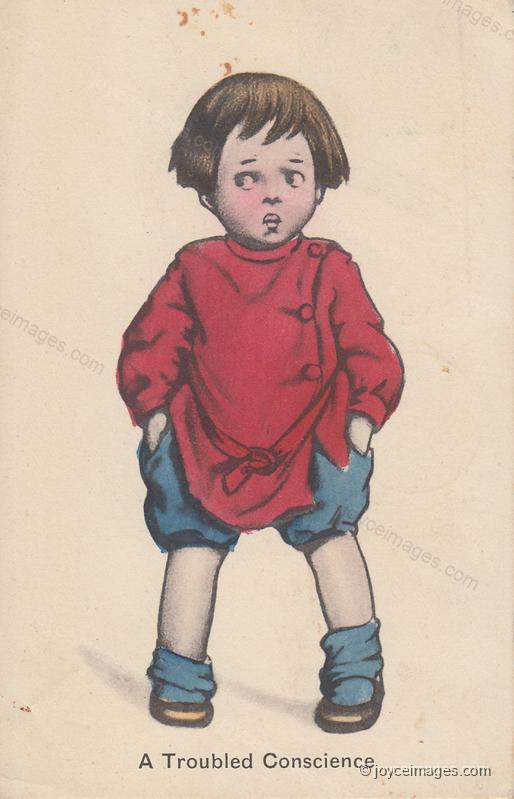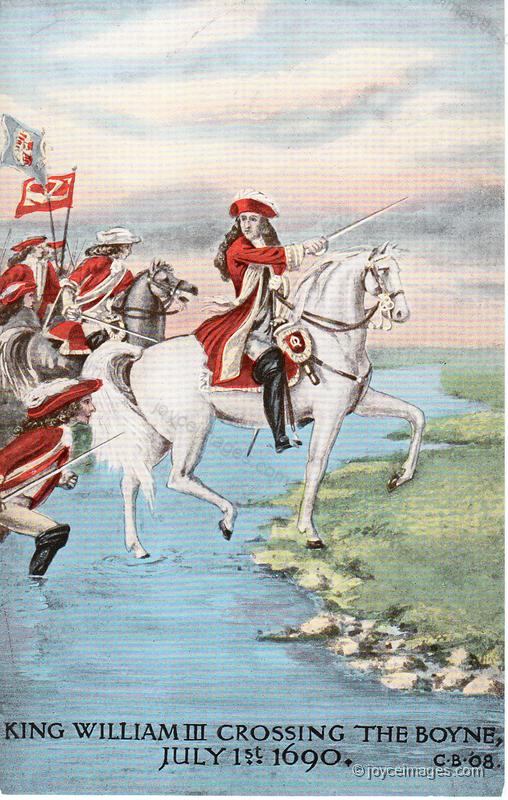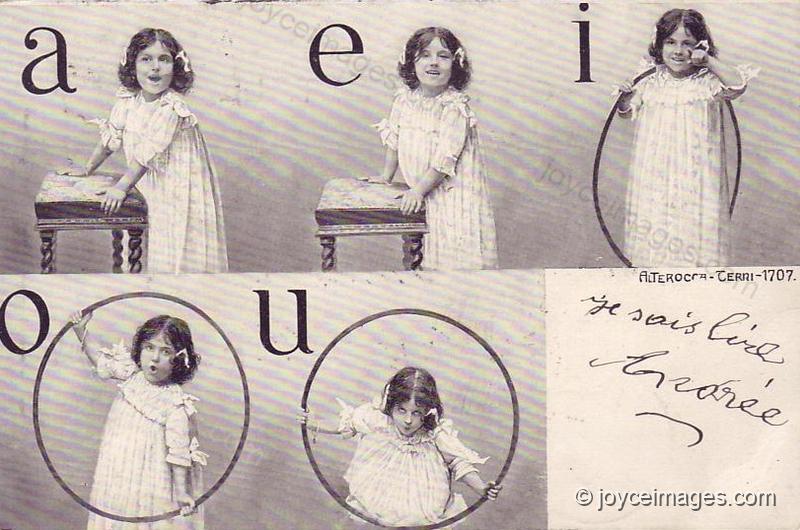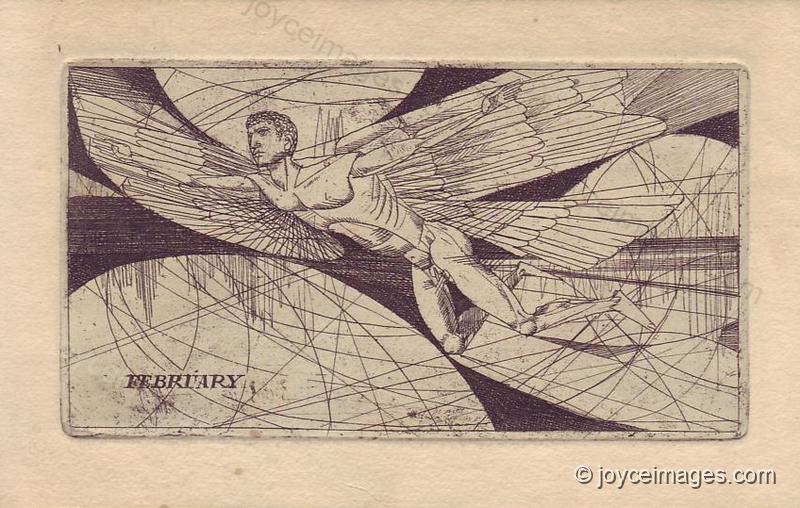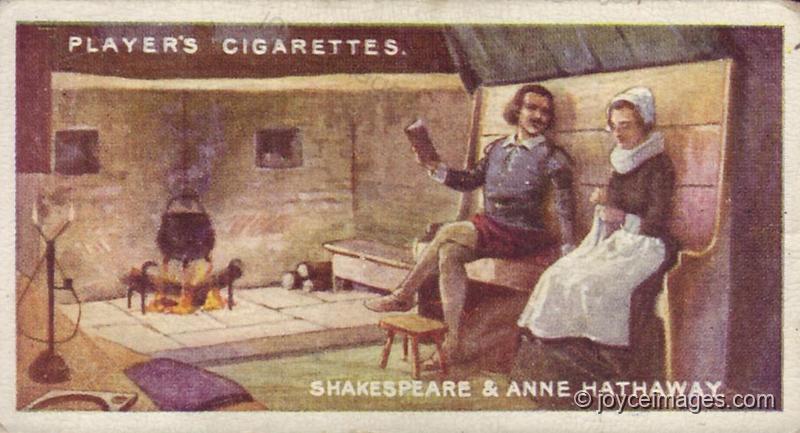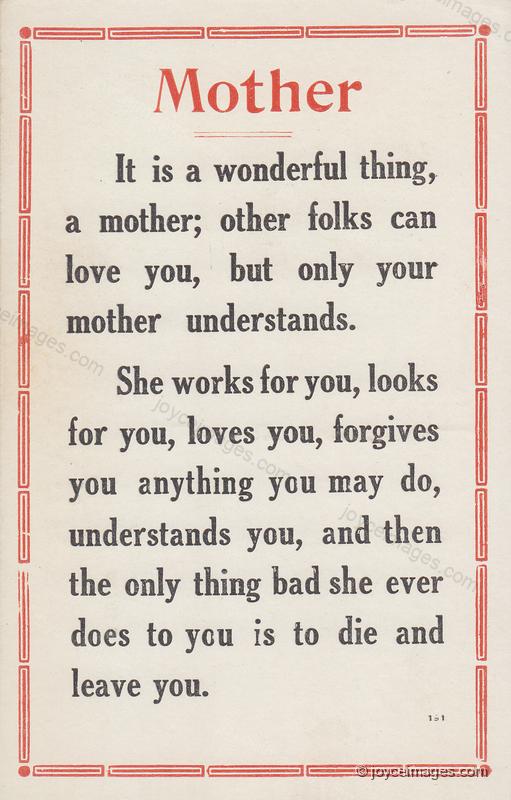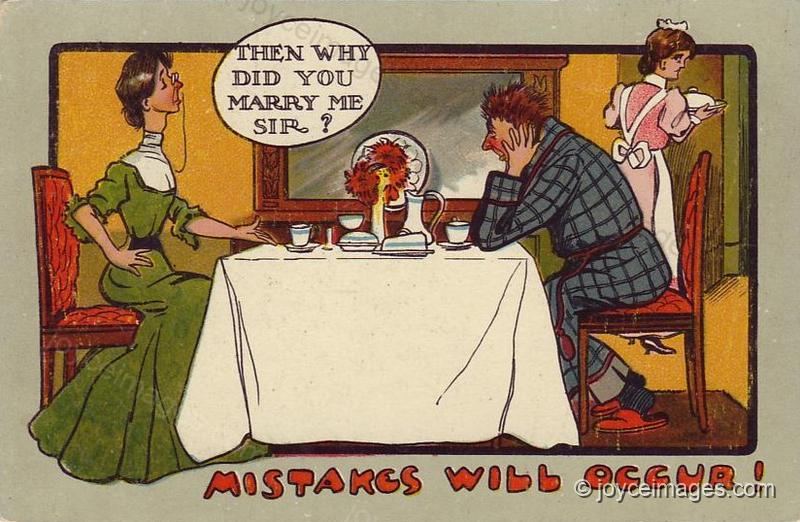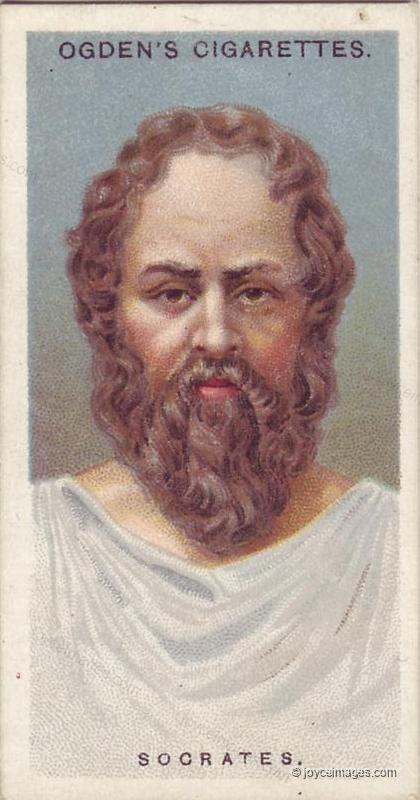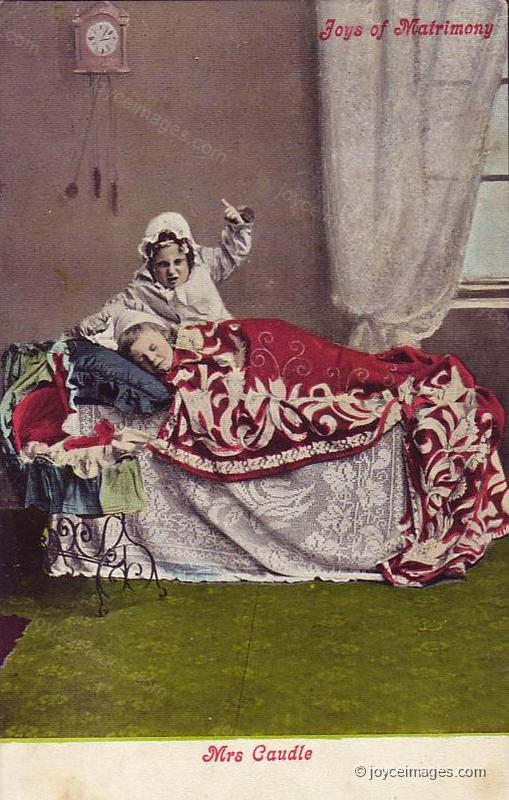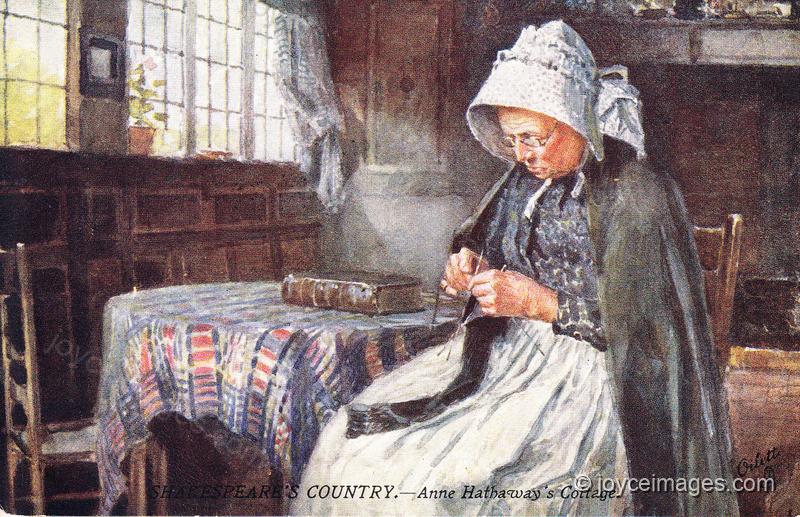"The play begins. A player comes on under the shadow, made up in the castoff mail of a court buck, a wellset man with a bass voice. It is the ghost, the king, a king and no king, and the player is Shakespeare who has studied Hamlet all the years of his life which were not vanity in order to play the part of the spectre. He speaks the words to Burbage, the young player who stands before him beyond the rack of cerecloth, calling him by a name:
Hamlet, I am thy father's spirit
bidding him list. To a son he speaks, the son of his soul, the prince, young Hamlet and to the son of his body, Hamnet Shakespeare, who has died in Stratford that his namesake may live for ever." (U9.164)
Hamlet, I am thy father's spirit
bidding him list. To a son he speaks, the son of his soul, the prince, young Hamlet and to the son of his body, Hamnet Shakespeare, who has died in Stratford that his namesake may live for ever." (U9.164)
"Is it possible that that player Shakespeare, a ghost by absence, and in the vesture of buried Denmark, a ghost by death, speaking his own words to his own son's name (had Hamnet Shakespeare lived he would have been prince Hamlet's twin), is it possible, I want to know, or probable that he did not draw or foresee the logical conclusion of those premises: you are the dispossessed son: I am the murdered father: your mother is the guilty queen, Ann Shakespeare, born Hathaway?" (U9.174)
"- But this prying into the family life of a great man, Russell began impatiently.
Art thou there, truepenny?" (U9.181)
Art thou there, truepenny?" (U9.181)
"- Interesting only to the parish clerk. I mean, we have the plays. I mean when we read the poetry of King Lear what is it to us how the poet lived?" (U9.184)
"As for living, our servants can do that for us, Villiers de l'Isle has said. Peeping and prying into greenroom gossip of the day, the poet's drinking, the poet's debts. We have King Lear: and it is immortal.
Mr Best's face, appealed to, agreed.
Flow over them with your waves and with your waters, Mananaan,
Mananaan MacLir ..." (U9.186)
Mr Best's face, appealed to, agreed.
Flow over them with your waves and with your waters, Mananaan,
Mananaan MacLir ..." (U9.186)
"How now, sirrah, that pound he lent you when you were hungry?
Marry, I wanted it.
Take thou this noble.
Go to! You spent most of it in Georgina Johnson's bed, clergyman's daughter." (U9.192)
Marry, I wanted it.
Take thou this noble.
Go to! You spent most of it in Georgina Johnson's bed, clergyman's daughter." (U9.192)
"I paid my way. I paid my way.
Steady on. He's from beyant Boyne water. The northeast corner. You owe it.
Wait. Five months. Molecules all change. I am other I now. Other I got pound.
Buzz. Buzz.
But I, entelechy, form of forms, am I by memory because under everchanging forms.
I that sinned and prayed and fasted.
A child Conmee saved from pandies." (U9.202)
Steady on. He's from beyant Boyne water. The northeast corner. You owe it.
Wait. Five months. Molecules all change. I am other I now. Other I got pound.
Buzz. Buzz.
But I, entelechy, form of forms, am I by memory because under everchanging forms.
I that sinned and prayed and fasted.
A child Conmee saved from pandies." (U9.202)
"- Do you mean to fly in the face of the tradition of three centuries? John Eglinton's carping voice asked. Her ghost at least has been laid for ever. She died, for literature at least, before she was born." (U9.214)
"- She died, Stephen retorted, sixtyseven years after she was born. She saw him into and out of the world. She took his first embraces. She bore his children and she laid pennies on his eyes to keep his eyelids closed when he lay on his deathbed." (U9.217)
"Mother's deathbed. Candle. The sheeted mirror. Who brought me into this world lies there, bronzelidded, under few cheap flowers. Liliata rutilantium.
I wept alone." (U9.221)
I wept alone." (U9.221)
"John Eglinton looked in the tangled glowworm of his lamp.
- The world believes that Shakespeare made a mistake, he said, and got out of it as quickly and as best he could.
- Bosh! Stephen said rudely. A man of genius makes no mistakes. His errors are volitional and are the portals of discovery." (U9.225)
- The world believes that Shakespeare made a mistake, he said, and got out of it as quickly and as best he could.
- Bosh! Stephen said rudely. A man of genius makes no mistakes. His errors are volitional and are the portals of discovery." (U9.225)
"Portals of discovery opened to let in the quaker librarian, softcreakfooted, bald, eared and assiduous.
- A shrew, John Eglinton said shrewdly, is not a useful portal of discovery, one should imagine. What useful discovery did Socrates learn from Xanthippe?
- Dialectic, Stephen answered: and from his mother how to bring thoughts into the world. What he learnt from his other wife Myrto (absit nomen!), Socratididion's Epipsychidion, no man, not a woman, will ever know." (U9.230)
Xanthippe was the wife of Socrates. There are more stories than facts about her. She is believed to have been much younger than the philosopher, perhaps by as much as forty years. She was famed for her sharp tongue and is said to have been the only person to ever have beaten Socrates in a discussion.
- A shrew, John Eglinton said shrewdly, is not a useful portal of discovery, one should imagine. What useful discovery did Socrates learn from Xanthippe?
- Dialectic, Stephen answered: and from his mother how to bring thoughts into the world. What he learnt from his other wife Myrto (absit nomen!), Socratididion's Epipsychidion, no man, not a woman, will ever know." (U9.230)
Xanthippe was the wife of Socrates. There are more stories than facts about her. She is believed to have been much younger than the philosopher, perhaps by as much as forty years. She was famed for her sharp tongue and is said to have been the only person to ever have beaten Socrates in a discussion.
"But neither the midwife's lore nor the caudlectures saved him from the archons of Sinn Fein and their naggin of hemlock." (U9.237)
'Mrs Caudle's Curtain Lectures' was a series of 'lectures' by journalist Douglas William Jerrold (1803 - 1857), serialised in Punch (where Jerrold worked) then published in book form in 1846. Jerrod, the son of an actor-manager, spent some time in the navy as an apprentice printer, then became a playwright and journalist. He was a contemporary and friend of Charles Dickens. Job Caudle, the 'hero' of the book, is a Victorian shopkeeper whose wife finds she can only talk to him without interruption when he is falling asleep. After she dies, Caudle finds himself unable to sleep on his own, and resolves to exorcise his wife's memory by writing down her 'lectures' for the edification of others.
'Mrs Caudle's Curtain Lectures' was a series of 'lectures' by journalist Douglas William Jerrold (1803 - 1857), serialised in Punch (where Jerrold worked) then published in book form in 1846. Jerrod, the son of an actor-manager, spent some time in the navy as an apprentice printer, then became a playwright and journalist. He was a contemporary and friend of Charles Dickens. Job Caudle, the 'hero' of the book, is a Victorian shopkeeper whose wife finds she can only talk to him without interruption when he is falling asleep. After she dies, Caudle finds himself unable to sleep on his own, and resolves to exorcise his wife's memory by writing down her 'lectures' for the edification of others.
